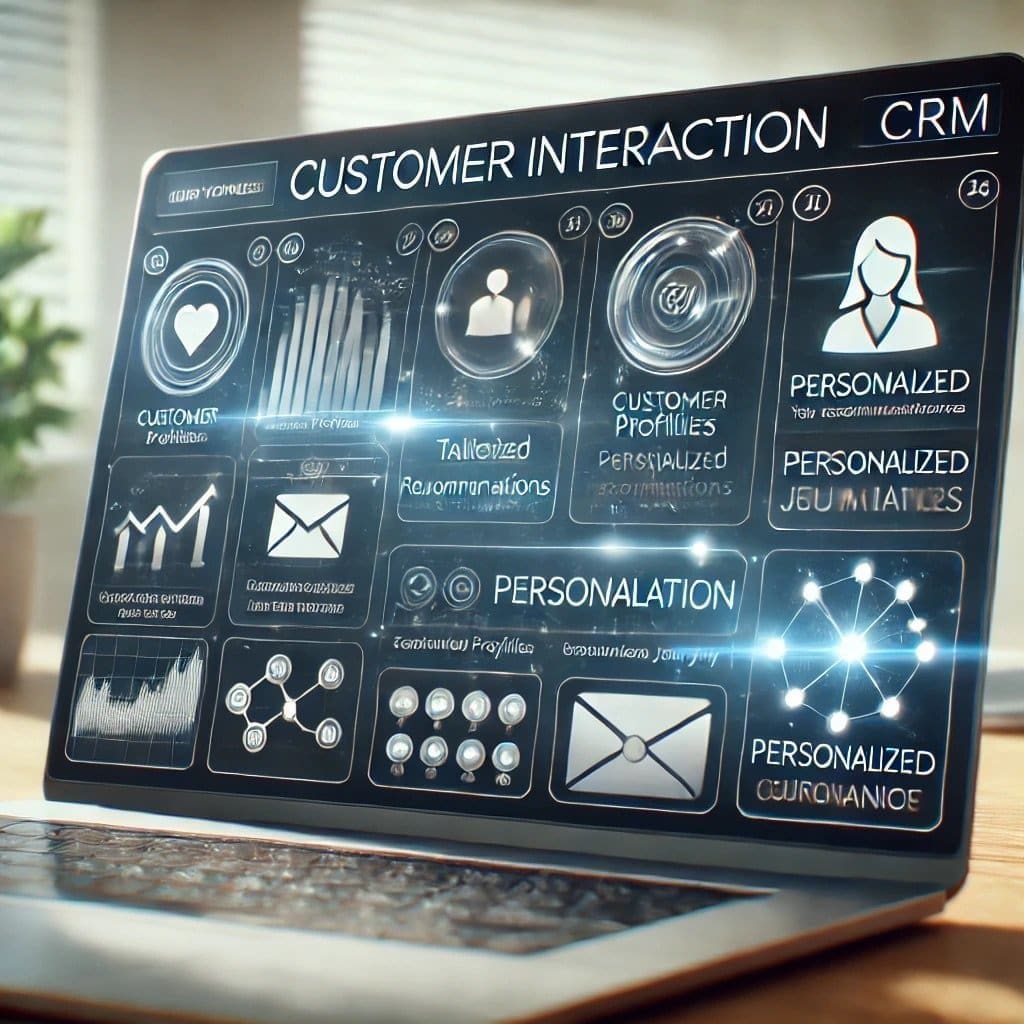In the modern business landscape, customers expect more than just high-quality products or services; they seek personalized experiences that cater to their unique needs and preferences. Personalization has become a critical component of Customer Relationship Management (CRM), enabling businesses to build stronger relationships with their customers, enhance satisfaction, and drive loyalty. In this article, we will explore the significance of personalization in CRM and how businesses can effectively implement it to create meaningful customer interactions.
1. Understanding Personalization in CRM
Personalization in CRM refers to the process of tailoring interactions and communications based on individual customer data, preferences, and behaviors. By leveraging customer data, businesses can create targeted marketing campaigns, offer customized product recommendations, and provide personalized customer service. The key aspects of personalization in CRM include:
• Customer Profiles: Building detailed profiles that capture customer preferences, purchase history, and interaction patterns.
• Segmented Communication: Sending personalized messages to specific customer segments based on their interests and behaviors.
• Tailored Recommendations: Offering products or services that match the individual needs of each customer.
2. Enhancing Customer Experience
One of the primary benefits of personalization in CRM is the enhancement of the customer experience. When customers feel understood and valued, they are more likely to engage with the brand and remain loyal over time. Personalization can improve the customer experience in several ways:
• Relevant Content: Delivering content that resonates with the customer’s interests, such as personalized emails, newsletters, or product recommendations.
• Timely Communication: Sending timely and relevant communications, such as reminders for upcoming renewals, special offers on products they’ve shown interest in, or follow-up messages after a purchase.
• Seamless Interactions: Providing a seamless experience across all touchpoints, from online interactions to in-store visits, by utilizing customer data to anticipate their needs.
3. Driving Customer Loyalty
Personalization plays a crucial role in fostering customer loyalty. When customers receive personalized experiences, they are more likely to develop an emotional connection with the brand, leading to increased loyalty and advocacy. Here’s how personalization can drive loyalty:
• Rewards and Incentives: Offering personalized loyalty programs, discounts, or rewards based on individual purchasing behavior or customer lifetime value.
• Customer Engagement: Creating opportunities for meaningful engagement, such as personalized follow-ups, birthday messages, or exclusive access to events and promotions.
• Trust Building: Personalization helps build trust by demonstrating that the business values the customer’s preferences and privacy, leading to stronger, long-term relationships.
4. Boosting Sales and Conversions
Personalization in CRM can significantly boost sales and conversions by delivering the right message to the right customer at the right time. By understanding customer behavior and preferences, businesses can create targeted campaigns that resonate with their audience, leading to higher conversion rates. Key strategies include:
• Cross-Selling and Upselling: Recommending complementary products or services based on the customer’s previous purchases or browsing history.
• Abandoned Cart Recovery: Sending personalized reminders and incentives to customers who have left items in their online shopping cart without completing the purchase.
• Dynamic Pricing: Offering personalized pricing or discounts based on customer segmentation, purchasing history, or loyalty status.
5. Utilizing Data for Personalization
To effectively personalize customer interactions, businesses must leverage data and analytics. CRM systems provide valuable insights into customer behavior, preferences, and interactions, which can be used to create personalized experiences. Here’s how to utilize data for personalization:
• Data Collection: Collect customer data from various touchpoints, including website visits, social media interactions, purchase history, and customer service inquiries.
• Customer Segmentation: Segment customers based on demographics, purchasing behavior, and engagement levels to tailor marketing and communication strategies.
• Predictive Analytics: Use predictive analytics to anticipate customer needs and behaviors, allowing for proactive and personalized engagement.
6. Challenges of Personalization in CRM
While personalization offers significant benefits, it also presents challenges that businesses must navigate to be successful. Some common challenges include:
• Data Privacy: With increasing concerns about data privacy, businesses must ensure they handle customer data responsibly and comply with regulations such as GDPR.
• Data Management: Managing and analyzing large volumes of customer data can be complex, requiring robust CRM systems and analytics tools.
• Balancing Personalization and Automation: While automation is essential for efficiency, businesses must strike a balance to ensure that personalization remains authentic and meaningful.
7. Best Practices for Implementing Personalization
To successfully implement personalization in CRM, businesses should follow best practices that align with their goals and customer expectations:
• Start Small: Begin with simple personalization strategies, such as personalized emails or product recommendations, and gradually expand to more complex tactics.
• Test and Optimize: Continuously test different personalization strategies and optimize them based on customer feedback and data analysis.
• Prioritize Customer Privacy: Be transparent about how customer data is used and provide options for customers to manage their data preferences.
Conclusion
Personalization in CRM is no longer a luxury but a necessity for businesses looking to build lasting relationships with their customers. By leveraging customer data to create personalized experiences, businesses can enhance customer satisfaction, drive loyalty, and boost sales. However, successful personalization requires careful planning, data management, and a commitment to respecting customer privacy. By following best practices and staying attuned to customer needs, businesses can unlock the full potential of personalization in CRM and achieve long-term success.



One comment